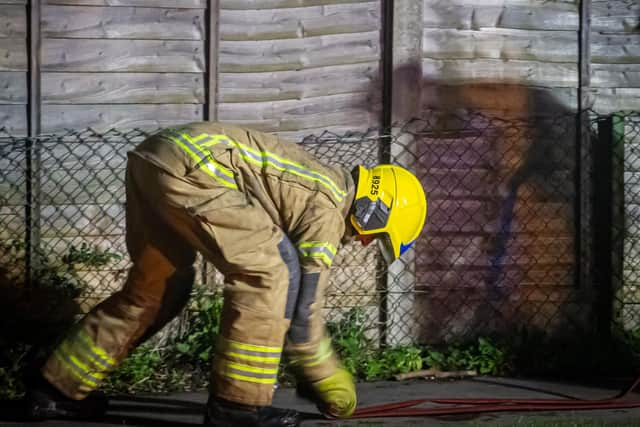Hampshire firefighters' concerns over 'catastrophic' axing of safety agreement
and live on Freeview channel 276
Hampshire Fire Brigade Union spoke out after an agreement affecting Hampshire Fire and Rescue Service was scrapped at a national level.
Individual firefighters have been volunteering themselves to seconded working in morgues, ambulance driving and delivering PPEs.
Advertisement
Hide AdAdvertisement
Hide AdMark Chapman, Fire Brigade Union Hampshire branch chairman, said bosses agreed in March last year that such volunteers should isolate for at least three days after their tasking, and then take a PCR test.


This was designed to create a barrier between the Covid tasking and firefighting shifts, preventing any possible transmission to crews.
The collapse of the national agreement means there is ‘no barrier to transmission’ in the county as this three-day isolation period has been scrapped, Mr Chapman said.
He told The News: ‘It could be catastrophic in terms of the way this new viral strain could pass from one firefighter to the next.
Advertisement
Hide AdAdvertisement
Hide Ad‘It has the potential to take out watches and stations if it goes unmitigated.’
He added: ‘Hampshire's now looking at support in ICU and that takes the form of moving people from the prone position to the other side, to assist with their circulation.
‘They're working right on the frontline and we (thank) them for doing that - but it should be done in the safest way possible.’
It’s understood that firefighters are prepared to help in ICUs at hospitals, including at Southampton General Hospital and Queen Alexandra Hospital in Cosham.
Advertisement
Hide AdAdvertisement
Hide AdThe Covid treatment sees medics putting patients on their stomachs in a bid to tackle respiratory distress.
The FBU said the agreement was scrapped in mid-January.
Deputy chief fire officer Steve Apter said the service locally had not agreed with a three-day isolation period, but had given them time for rest between shifts.
Mr Apter told BBC Radio Solent firefighters have twice-weekly lateral flow tests, vaccinations, and psychological screening before and after some detachments.
‘There is definitely an issue at a national level,’ he said. ‘We don’t have that issue locally thankfully.’
Advertisement
Hide AdAdvertisement
Hide AdHe added: ‘But we keep that under review all the time, as you imagine, the advice and the guidance we work to from Public Health England and the Department of Health and other agencies is changing, it’s evolving… and we adapt with that advice.’